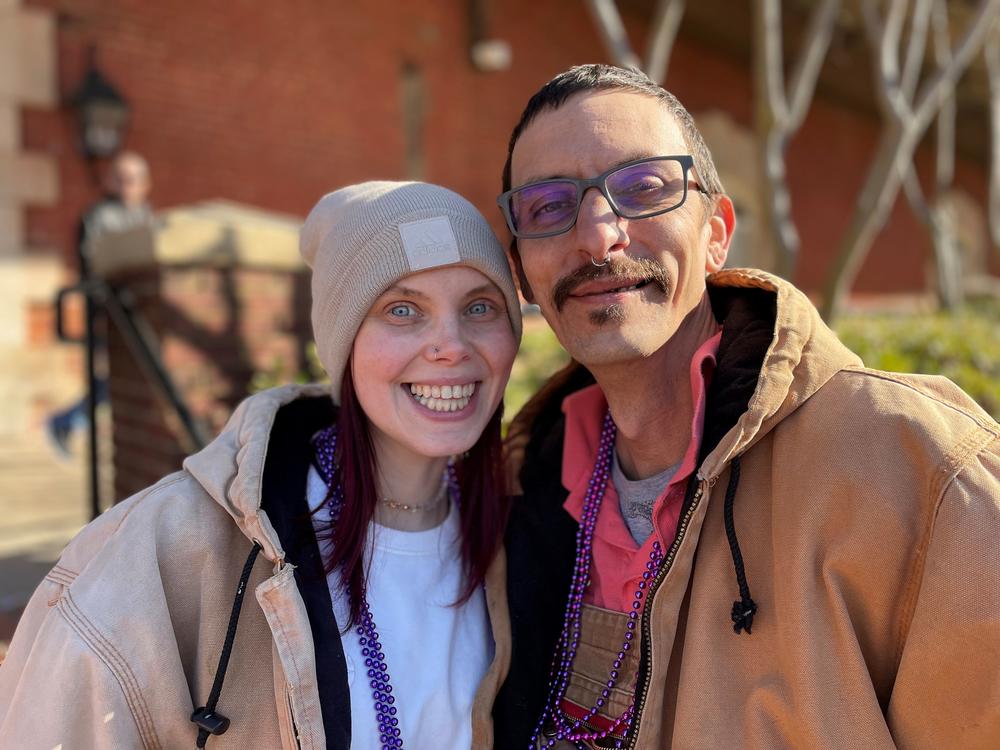
Caption
Kalia Sprouse and Marcus York both have lived experience of recovery from substance use disorder. Both attended the annual Addiction Recovery and Awareness Day at the state Capitol on Thursday, Jan. 18, 2024.
Credit: Ellen Eldridge / GPB News


